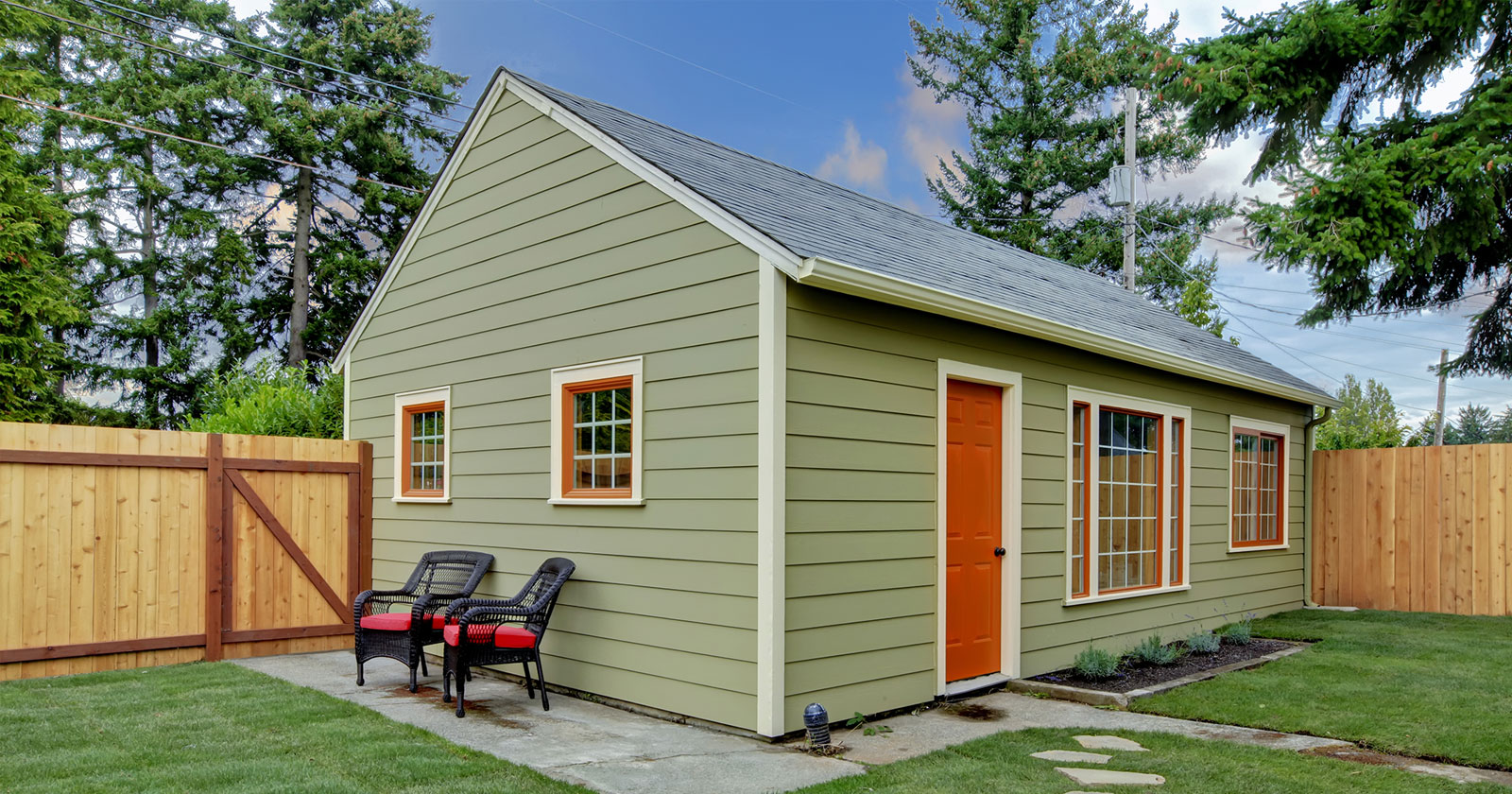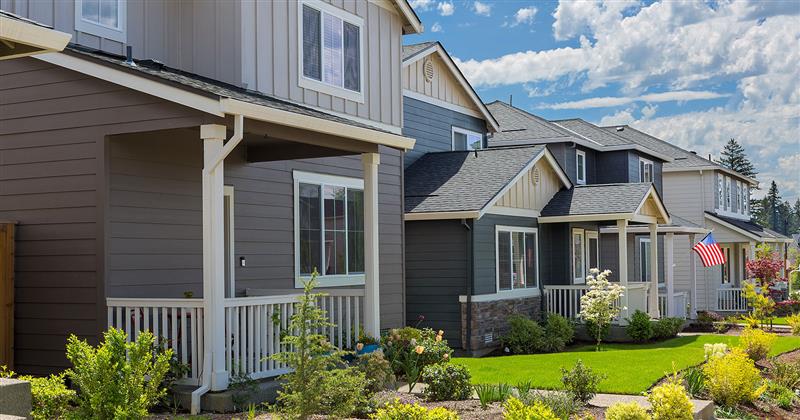Question: Is an Accessory Dwelling Unit (ADU) a good investment?
Answer: Yes!
ADU investments are both a smart and financially savvy choice in 2025. According to Porch, homes with an ADU addition sell for 35% higher than similar properties. That is because, for investors, there are several benefits of ADU additions to investment properties, including:
- Additional rental income streams
- Enhanced property value
- ADU tax deductions
- Living flexibility
However, not all properties (and areas) are ADU-friendly. Without proper research and understanding of the type of property that makes for a good ADU addition, investors can quickly fall into a money pitfall.
Below, we’ll discuss ADU tips and 6 considerations investors should take into account when picking the right property for their ADU investment.
4 Considerations When Selecting an ADU Investment Property
While ADUs’ return on investment (ROI) can be spectacular, success depends on the property’s characteristics, location, zoning, neighborhood policies, and financing.
1. Property Characteristics
Whether you plan to build an attached or detached unit, a property’s characteristics (lot size, terrain, parking, etc.) play a huge role in an ADU’s success.
Some of the top characteristics for an ADU property include:
- Larger lots: While there’s no “ideal” size for an ADU-friendly property, those with larger lots, ample backyard space, unused areas, or convertible garage spaces can facilitate ADU constructions.
- Terrain: Lots with flat land can simplify ADU investment construction and minimize costs.
- Parking & Accessibility: If you’re renting out an ADU, consider properties that have multiple entrances, with a separate accessible entrance for the ADU. Properties with ample and accessible parking will also entice potential tenants.
TIP: Try to avoid properties with septic tanks. Instead, a connected sewer system can streamline the construction of an accessory dwelling unit.
2. Location, Location, Location
While there are no specific federal regulations governing ADU constructions, state governments play a significant role in shaping the dos, don’ts, and can’ts of ADU investments.
In most states, common rules and regulations include:
- Location Requirements: While some of the more friendly states permit accessory dwelling units in all residential areas, many restrict ADUs to specific zones and neighborhoods.
- Design Rules: Rules regarding the design and architectural compatibility with the primary dwelling are commonplace within state regulations. Many jurisdictions also limit the maximum size of attached ADU additions to between 800 and 1,200 square feet.
- Permitting: The process and costs of obtaining an ADU permit can vary significantly from state to state, with the more difficult states creating longer application and approval process times.
Fortunately, with affordability becoming the driving force behind today’s real estate consumers, many states have begun to loosen restrictions on accessory dwelling units. In 2025, some of the top ADU-friendly states include:
- California
- Oregon
- Washington
- Massachusetts
- Florida
- Colorado
- Arizona
- Texas
- North Carolina
- New York
Tip: Check for any easements or legal rights on an investment property that may restrict ADU constructions.
3. Zoning Rules, Neighborhood Policies, & Easements
While navigating the evolving regulatory challenges in residential rental real estate is difficult enough, ADU zoning laws and building codes add another layer of complexity. While zoning rules and regulations regarding ADUs vary city to city, they often come with additional approval processes and stricter guidelines. If you’re planning to invest in a property with a non-owner-occupied ADU for rent, do your due diligence and communicate with local officials regarding specific ADU requirements and laws. Looking for properties in more lenient cities will help to ease the process.
Neighborhoods with HOAs can further complicate rental rules for landlords, especially those looking to add an ADU property. While state and city ordinances may allow ADU investment constructions, HOA policies in certain neighborhoods and communities can ban the construction of additional units.
TIP: Even in communities that allow ADU additions, it’s beneficial to get a pulse of the neighborhood before venturing into an ADU property investment. Neighbor resistance is not uncommon when it comes to ADU rental units, and can make the approval and construction of an accessory dwelling unit that much more difficult.
Some of the most common neighborhood objections to ADUs include:
- Privacy concerns
- Noise and construction disruptions
- Parking and traffic complaints
- Property value concerns
4. Adequate Financing
How much is it to build an ADU? While accessory dwelling unit costs can vary drastically from city to city, with more popular cities like Los Angeles and San Francisco running up to $300k, the average ADU construction cost is around $180,000 ($260 per square foot). While the long-term rental income stream justifies these costs for investors, securing financing for an ADU construction comes with challenges.
Unfortunately, traditional lenders, like banks and credit unions, have vast governmental and institutional oversight, strict guidelines, and hefty requirements. These lenders often lack the flexibility and freedom to provide ADU-friendly financing options to investors.
That is why savvy long-term ADU investors turn to private lenders operating outside of the bureaucracy of governments and institutions. These lenders, like Finance of America Commercial (FACo), have the flexibility and resources to provide investors with:
- Customizable loan options to fit their unique needs.
- Agile and accessible financing options for unconventional ADU projects, like tiny homes, container homes, basement conversions, and more.
- New build and renovation loans that cover up to 100% of a property’s construction or rehabilitation costs.
Picking the Right Financing Partner for Your ADU Investment
For investors looking to capitalize on consumer demands for affordable housing with an ADU-friendly investment property, finding reliable, fast, and accessible financing is essential to success. For over a decade, FACo’s superior loan programs and fast financing have helped long-term investors outpace the competition and cash in on the latest market trends.
Our fix and flip & construction loan programs help facilitate the development of attached or detached ADU units, offering:
- Flexible term rates
- Up to 100% rehab or construction costs
- Snap Draws DIY for a faster, easier, mobile draw request process
Additionally, once your ADU investment is completed and occupied, investors can seamlessly refinance with FACo’s long-term single rental & rental portfolio loan options.
If you’re looking to capitalize on an ADU investment property, FACo’s team of industry experts can help you find the ideal property for you and your business goals. CLICK HERE to schedule a FREE consultation with a FACo team member today.
Authored by Bianca Montalvo
SEO copywriter and strategist




